Related Research Articles
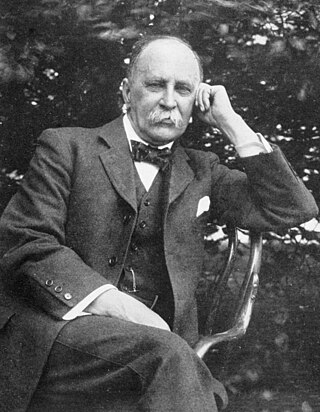
Sir William Osler, 1st Baronet, was a Canadian physician and one of the "Big Four" founding professors of Johns Hopkins Hospital. Osler created the first residency program for specialty training of physicians. He has frequently been described as the Father of Modern Medicine and one of the "greatest diagnosticians ever to wield a stethoscope". In addition to being a physician he was a bibliophile, historian, author, and renowned practical joker. He was passionate about medical libraries and medical history, having founded the History of Medicine Society, at the Royal Society of Medicine, London. He was also instrumental in founding the Medical Library Association of Great Britain and Ireland, and the Association of Medical Librarians along with three other people, including Margaret Charlton, the medical librarian of his alma mater, McGill University. He left his own large history of medicine library to McGill, where it became the Osler Library.

Herbert Spencer Gasser was an American physiologist, and recipient of the Nobel Prize for Physiology or Medicine in 1944 for his work with action potentials in nerve fibers while on the faculty of Washington University in St. Louis, awarded jointly with Joseph Erlanger.

The Temerty Faculty of Medicine is the medical school of the University of Toronto. Founded in 1843, the faculty is based in Downtown Toronto and is one of Canada's oldest institutions of medical studies, being known for the discovery of insulin, stem cells and the site of the first single and double lung transplants in the world.
Phil Gold is a Canadian physician, scientist, professor and author.
Martin Henry Dawson was a Canadian researcher who made important contributions in the fields of infectious diseases.

James Bertram Collip was a Canadian biochemist who was part of the Toronto group which isolated insulin. He served as the chair of the department of biochemistry at McGill University from 1928 to 1941 and dean of medicine at the University of Western Ontario from 1947 to 1961, where he was a charter member of The Kappa Alpha Society.
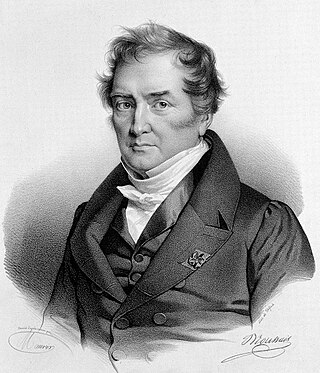
François-Joseph-Victor Broussais was a French physician.
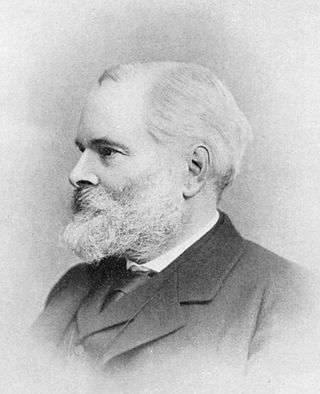
Alexander Crum Brown FRSE FRS was a Scottish organic chemist. Alexander Crum Brown Road in Edinburgh's King's Buildings complex is named after him.
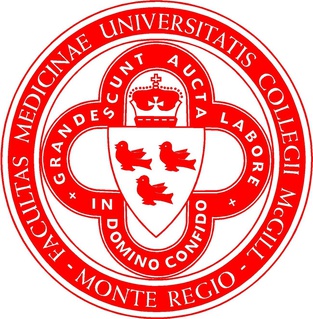
The Faculty of Medicine and Health Sciences is one of the constituent faculties of McGill University. It was established in 1829 after the Montreal Medical Institution was incorporated into McGill College as the college's first faculty; it was the first medical faculty to be established in Canada. The Faculty awarded McGill's first degree, and Canada's first medical degree to William Leslie Logie in 1833.

Prof Arthur Gamgee FRS FRSE was a British biochemist.
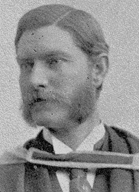
Thomas Wesley Mills (1847–1915), generally referred to as T. Wesley Mills in the scientific literature, was a Canadian physician and physiologist who worked as a professor at McGill University. Mills was Canada's first professional physiologist. He authored books and research articles on comparative physiology, animal behavior, and the physiology of voice production.
Michel Chrétien is a Canadian medical researcher specializing in neuroendocrinology research at the Institut de recherches cliniques de Montréal, or Clinical Research Institute of Montreal, (IRCM). He is a younger brother of former Canadian prime minister, Jean Chrétien.

John Gray McKendrick FRS FRSE FRCPE LLD was a distinguished Scottish physiologist. He was born and studied in Aberdeen, Scotland, and served as Regius Professor of Physiology at the University of Glasgow from 1876 to 1906. He was co-founder of the Physiological Society.
Robert Franz Schmidt was a German physiologist and professor emeritus. From 1982 until 2000 he was the director of the Institute of Physiology at the University of Würzburg.
William Stirling MD LLD DSc FRSE, was a Scottish physiologist. He served as professor of physiology and was a founder of the physiology department at the Victoria University of Manchester.

John Alexander MacWilliam, a physiologist at the University of Aberdeen in the late nineteenth and early twentieth centuries, was a pioneer in the field of cardiac electrophysiology. He spent many years studying ventricular fibrillation, and was the first person to propose that ventricular fibrillation was the most common cause of sudden death - and that fibrillation could be terminated by a series of induction shocks to the heart. He was the first to accurately describe the condition of arrhythmia, and he suggested transthoracic pacing to treat transient asystole . Although his work was recognised within his lifetime, it was not until many decades later that it laid the foundations for developments in the understanding and treatment of life-threatening heart conditions, such as in the artificial cardiac pacemaker. MacWilliam was appointed Regius Professor of the Institutes of Medicine at the University of Aberdeen at the age of 29 in 1886, and remained in that post for 41 years until his retirement in 1927.

Diarmid Noël Paton,, known as Noël Paton, was a Scottish physician and academic. From 1906 to 1928, he was the Regius Professor of Physiology at the University of Glasgow.
John Tait was a 20th-century Scottish physician, physiologist and medical author. He was emeritus Professor of Medicine at McGill University in Canada.
Michael C. Mackey is a Canadian-American biomathematician and Professor in the Department of Physiology of McGill University in Montreal, Quebec, Canada who holds the Joseph Morley Drake Emeritus Chair.
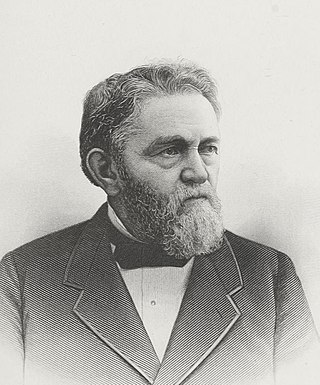
William Heath Byford was an American physician, surgeon, gynecologist and advocate of medical education for women who was most notable for founding the Chicago Medical College and Woman's Medical College of Chicago.
References
- ↑ Michael Bliss (18 November 1999). William Osler: A Life in Medicine . Oxford University Press. pp. 79. ISBN 978-0-19-512346-3 . Retrieved 28 May 2012.
- ↑ "Departmental Chairs 1872 to the present". McGill University Faculty of Medicine. Archived from the original on 1 January 2013. Retrieved 28 May 2012.
- ↑ Joseph Hanaway; Richard Cruess; James Darragh (19 January 2006). McGill Medicine: 1885-1936. McGill-Queens. p. 140. ISBN 978-0-7735-2958-8 . Retrieved 28 May 2012.